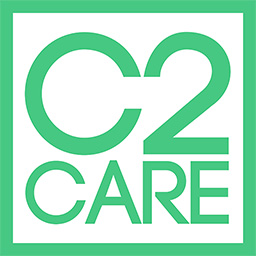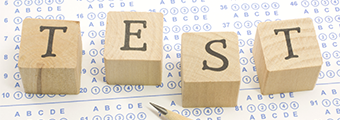What are the symptoms of ochlophobia or fear of crowds?
Although fear of crowds is the predominant characteristic of ochlophobia, the psychological representations of those who suffer from it are quite different. The resulting physical, emotional and mental symptoms are not necessarily the same from one ochlophobe to another.

Fear of crowds, a strong sense of oppression
If you suffer from ochlophobia, just being in the middle of a crowd makes you feel very oppressed. Sometimes your anxiety is so great that you trigger a panic attack. In this case, psychic, psychomotor, physical and neuro-vegetative symptoms appear.
The psychic symptoms are a feeling of imminent death, a feeling of not being yourself anymore, of not feeling connected to the body, of going crazy. It is then impossible to focus on anything and regain control of the situation. This is usually accompanied by a feeling of powerlessness to act and think.
Psychomotor, physical and neurovegetative symptoms of fear of crowds
Psychomotor symptoms affect the person’s perceptual and motor adaptation. This means that the person has a loss of initiative and may be unable to feel, think, judge and react appropriately to a situation.
The physical symptoms are characterised by breathing difficulties, an intense acceleration of the heart rate, increased sweating, trembling in the arms and legs, and hot flushes.
Finally, the neurovegetative system ensures the distribution of nervous elements in a part of the body. When you have a panic attack, it is the sympathetic nervous system (part of the overall neuro-vegetative system) that is responsible for orchestrating the flight or fight response. The resulting neuro-vegetative symptoms include sweating, pale/red face, clammy hands, dry mouth.
You avoid crowded places
All these symptoms are so intense that you do everything to avoid being in crowded places. You anticipate every situation that might make you feel uncomfortable or anxious (taking transport at rush hour, shopping in large shopping centres, etc.). By systematically using these avoidance strategies, no one can see the real difficulties you have in such situations. If, however, you do have an anxiety attack, it is advisable to isolate yourself, without necessarily staying alone, in a quiet and spacious place. The idea is to divert your attention away from your discomfort so that you can gradually regain your composure.
Ochlophobia: a symptom of another phobia?
Although ochlophobia is distinguished from agoraphobia, claustrophobia or blemmophobia (a pathological fear of the gaze of others) in the definition of fear of crowds, the latter has strong links with these particular disorders to the extent that it could, in some cases, be placed as a consequence of these disorders. When accompanied by panic disorder, one can well imagine the occurrence of a panic attack in an individual in the midst of a crowd that would not, however, be directly caused by the perceived threat of the crowd at that moment. However, the extremely difficult physical sensations felt at the time are more than enough to generate avoidance behaviour in crowded places and, as a result, to gradually establish a real phobia of the crowd.
In these specific forms, which are quite common, ochlophobia appears more as a symptom of another phobia. It shares with the detached forms of other disorders, manifestations of anxiety and panic such as palpitations, acute anxiety attacks or trembling, but differs from them in the irrational beliefs and catastrophic thoughts they provoke. Indeed, fears of not being able to escape or not being able to be rescued in a crowd will be central to an agoraphobic person far more than the idea of being trampled by others. Similarly, it will be the fear of running out of air due to the compression of the crowd that will worry you most if you are claustrophobic.
You can overcome your fear of crowds
There are many effective treatments and therapies available today to cure ochlophobia. Although it is certainly possible that the activity restrictions caused by your fear do not yet greatly affect your daily life, it is a precarious balance that will soon be overturned by avoidance and/or situations that will be difficult to escape from and will then be experienced as new traumas. Your worries will be reinforced and, as a result, all areas of your life will suffer to the extent that your quality of life will be seriously impaired.


